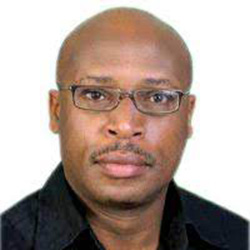It is a given that art transcends cultures, and that one of the most popular media it is consumed is the movie, which artfully tells a visual story while conveying emotions, actions and feelings combined with sound or music for dramatic effect.

It is a given that art transcends cultures, and that one of the most popular media it is consumed is the movie, which artfully tells a visual story while conveying emotions, actions and feelings combined with sound or music for dramatic effect.
There is nothing new in making this assertion, except that one may not fail to acknowledge the milestones of acceptance of this truism when Mahershala Ali became the first Muslim to win the American Academy Award for best supporting actor.
It will be recalled that last year’s Oscar Awards marked the watershed with the uproar that resulted from black players’ exclusion by the overwhelmingly white Academy of Motion Picture Arts and Sciences.
Ali’s Oscar was for his performance as a father figure, despite being a drug dealer, to a young black man (Chiron) living in poverty in Miami and Chiron’s social struggle against sexual prejudice in the movie "Moonlight”.
The themes explored are probably alien to many Rwandans, but the story is nevertheless relatable and very human. This came to mind as I came across a news item in this paper this week on the Third Mashariki African Film Festival (MAAFF) to be held later this month.
It occurred to me that it would have been nice to sample the films through a streaming service such as Netflix. Failing in this, and other than availing the films on local TV channels, the challenge remains to create viable local services.
It also seemed apparent that, as time has passed, the titles on offer at the forthcoming MAAFF suggest stories other than those inspired by the ever compelling motif of the tragedy and aftermath of the Genocide against the Tutsi that, to some extent, still continues to define Rwanda.
Stories not necessarily related to the Genocide are certainly worth telling. This was not unlike Viola Davis’ performance in the movie, "Fences”. She became the first black with her win of this year’s Oscar as the Best Actress in a Supporting Role category in the film.
The movie, a screen adaptation of the Pulitzer Prize-winning drama of the same name by the playwright August Wilson, tells the story of an African American father trying to raise his family in the 1950s while struggling with his own past failures. It is every father’s failures.
As Davis memorably summed it, not just about her role but the play during her acceptance speech, "People ask me all the time, what kind of stories do you want to tell, Viola? And I say, exhume those bodies, exhume those stories, the stories of the people who dreamed.”
It is often about dreams. Mahershala Ali, who converted to Islam some 17 years ago and remains on good terms with his mother, a Baptist minister, was a supporting actor in yet another of the nine movies that that were up for various categories of Oscar nomination, "Hidden Figures”.
It tells the story Katherine Johnson, a mathematician who broke the ceiling, not just for black women but women in general, at the male bastion that was America’s National Aeronautic and Space Agency (NASA), and was key in seeing the first man on the moon.
Had it not been for her tenacity, her dream would have been quashed not only in patriarchy but racism. The film did not win an award, but Katherine now in her nineties was honoured onstage by the cast of the movie.
But, having watched all of them, I also thought the other movies that took the accolades – "La La Land” and "Manchester by the Lake” – were as deserving.
Locally, though, there is also the better known Rwanda Film Festival, the brainchild of the local movie doyen, Eric Kabera, the coiner of the term Hillywood.
Comparing it with MAAFF, and though the name Mashariki (East) suggests it is regional, it appears more of an aspiration as the movies slated for the awards are by Rwandan filmmakers.
While competition is not necessarily a bad thing, one gets the feeling it probably would be more pragmatic to have a locally unified national film festival.
It can only nurture the nascent film industry as much as, with concerted introspection, decisively honour and encourage the incredible local talent.


